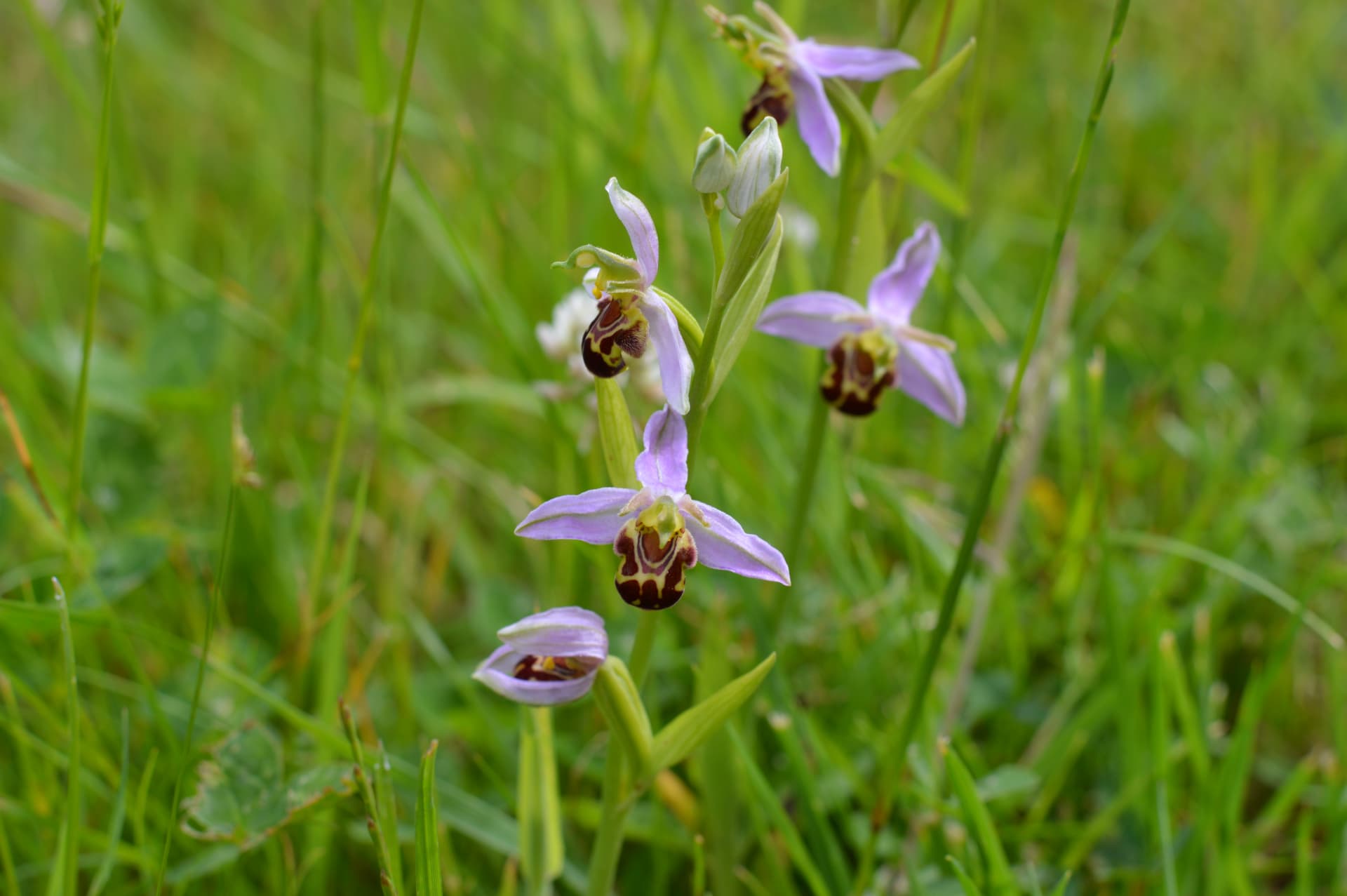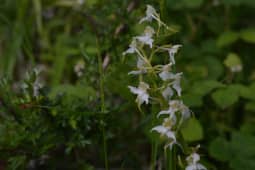There are many beautiful wildflowers growing in the British Isles, but British native orchids are perhaps amongst the rarest. With around 52 different species of wild orchid growing in Britain, some are so rare that they only grow in a few protected habitats and nature reserves. Due to changes in agricultural procedures over the years, areas where native orchids grew in abundance have been destroyed and now there are only a few habitats where they still grow.
Whilst these protected plants must never be picked or dug up from the wild, their exquisite beauty can be enjoyed, and you will find them hidden in a few grassland meadows flowering from May to September.
There are places around Oxfordshire where you will be able to see different rare species growing although it is likely that you will not be able to examine the plants up close. Plan a summer walk to Hartslock Nature Reserve in South Oxfordshire, just 1.5 miles from Goring-on-Thames; park in Goring and take the Thames Path to the 11-acre reserve. Whilst the reserve is home to several British native orchids such as bee, pyramidal, common spotted, common twayblade and white helleborine, you will also see the extremely rare monkey orchid which only grows here and in two other places in Kent.
Growing on a chalky slope, the orchids are taped off to stop them being trampled by visitors; you will, however, still be able to kneel and take photos and enjoy their beautiful flower spike with upper petals and sepals white veined with pink, growing up to 30cm high. If you are lucky and prevailing weather conditions have been right, you may also see the hybrid lady x monkey orchids which only grow at Hartslock.
The Warburg Nature Reserve near Henley-on-Thames is home to pyramidal orchids. Flowering in June and July, these distinctive wildflowers with their pyramid shaped head of flowers can range from deep magenta to pure albino white. They also grow in abundance on the Isle of Wight.
However, if you are not lucky enough to have seen these delightful plants growing in their natural habitats, with the help of specialist growers such as Bewdley Orchids, you can devote an area of your own garden to growing British native orchids.
Run by Dr Wilson Wall, Bewdley Orchids are a small company determined to help populate the dwindling population of native orchids. All the orchids they sell have been grown from seed under scientific conditions to help germination. The plants they sell are well-formed and should flower one to two years after planting. This can be by recreating a wildflower meadow where some species will grow happily or planting out a semi-shaded or woodland area of your garden.
Some species are relatively easy to grow; once established and with care, these hardy perennials will last for many years. You must remember that these orchids grow outdoors and for most species, the soil they grow in is crucial. Orchids such as bee, butterfly and pyramidal prefer a lime-rich compost and will not survive in a standard peaty potting compost. Other orchids such as common spotted, green-winged, early purple and common twayblade are not so fussy, growing well in a range of soil types. They usually all require a well-drained but humus-rich compost and if you are growing the orchids in pots or a flower bed, they will require a weak feed with fertiliser every six months. If the orchids are grown in a meadow, fertiliser is not required.
Many of the orchids suitable for growing in gardens are very easy going when it comes to soil type, but they don’t like competition from other plants. Bee and pyramidal orchids will perform very well in rockeries made from limestone, where they can be expected to spread if undisturbed.
With the exception of twayblades and helleborines, which need watering if they start to dry out, all the others have roots so deep they do not know the meaning of the word drought. The record is held by butterfly orchids which have roots up to 60cm long.
Further information about growing British native orchids sold by Bewdley Orchids can be found at bewdleyorchids.com
Photos supplied by Wilson Wall









